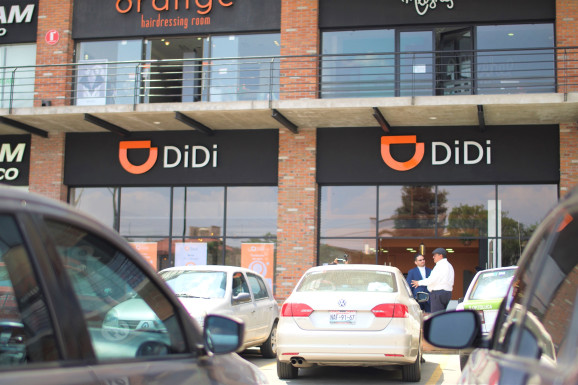 EMERGING TECH
EMERGING TECH
 EMERGING TECH
EMERGING TECH
 EMERGING TECH
EMERGING TECH
Chinese ride-hailing giant Didi Global Inc. today formally denied a report from The Wall Street Journal that it was planning to take the company private to placate authorities in mainland China.
The report claims that Didi could compensate investors for losses incurred since its U.S. public listing in late June by taking the company private. The company is also said to have held discussions with bankers, regulators and key investors about how it could resolve some of its problems.
Didi went public on the New York Stock Exchange June 30 and not long thereafter the wheels starting falling off, but it wasn’t necessarily of the company’s own making. The Chinese Communist Party, seemingly annoyed that Didi went public in the U.S., subsequently banned the Didi app from Chinese app stores, mainland China being the company’s main market although it does operate in other countries.
The app ban and allegations from CCP regulators that Didi has undertaken “serious violations on collecting and using personal information” have hit Didi’s share price ever since. After debuting at $14 a share and rising as high as $16.40, Didi’s share price dropped to a low of $7.18 on Monday before recovering slightly to $9.59 as of 8 p.m. EDT today.
Didi was succinct and straight to the point in its denial. The company “noted a Wall Street Journal article published today saying the company is considering going private. The company affirms that the above information is not true.”
Didi added that the “company is fully cooperating with the relevant government authorities in China in the cybersecurity review of the company.”
While Didi may deny the report, it is believable. Didi is running short of options to placate the CCP and its shareholders are hurting as a consequence. Taking the company private and hence off of American markets might be the easiest way to achieve that outcome.
That shareholders are hurting is also a given, and not just from Didi’s headline share price. According to CNBC, SoftBank Group Corp. is selling about one-third of its stake in Uber Technologies Inc. to cover its losses on Didi.
Uber itself has also been hit since it’s a shareholder in Didi through the sale of its China business in 2016. Uber is said to be down $2 billion last week on its Didi shares. With SoftBank also selling some 45 million shares in Uber, the company’s share price headed south, down 6% in the last five days and 3% today.
Support our mission to keep content open and free by engaging with theCUBE community. Join theCUBE’s Alumni Trust Network, where technology leaders connect, share intelligence and create opportunities.
Founded by tech visionaries John Furrier and Dave Vellante, SiliconANGLE Media has built a dynamic ecosystem of industry-leading digital media brands that reach 15+ million elite tech professionals. Our new proprietary theCUBE AI Video Cloud is breaking ground in audience interaction, leveraging theCUBEai.com neural network to help technology companies make data-driven decisions and stay at the forefront of industry conversations.